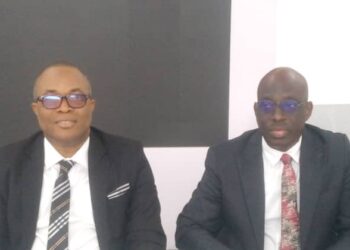As the quarter back of the economy, that protects individuals and businesses, the insurance industry has received fresh charge to stand by and for insured individuals and businesses that suffered varying degrees of losses during the widespread #EndSARS protest.
The Commissioner for Insurance, Mr. Sunday Thomas, gave the charge at the ongoing Professionals Forum, hosted by the Chartered Insurance Institute of Nigeria, in Abeokuta. He reminded attendees that the “widespread protests, civil unrest and destruction of properties and others have created further socio-economic hardship and barriers for business profitability and growth.”
But optimistic said the ability of the market to deploy its professional steroids, should provide the platform for the industry to relaunch the nation’s economic growth: “As Nigeria reals in the pain of the destruction and losses suffered this year, the Nigeria insurance industry must utilise the opportunity to lead in the quick recovery and restoration of the affected businesses and also showcase its role in reinforcing the economic resilience of individuals, businesses and the economy at large.”
He also linked the increased propensity for claims to the suddenness of the Covid-19 pandemic which imposed immense pressure on all businesses including insurance business. He said claims could come from pressures faced by consumers in the form of reduced finance and business activities, lack of access to credit, expiration and wastage of perishable goods, temporary or permanent business closures and employee contract terminations, life threatening and death.
Focusing on the apt and timely theme, “Defining the Future of the Insurance Industry,” the CFI said the pandemic had curtailed the ability of the industry to sell insurance products which in turn reduced premium income because of the traditional in-person sales and marketing, and this he reiterated, has necessitated the need for a robust online automated marketing and feedback system.
Another lesson from the pandemic he said, was the need to review conventional products and meet the current needs of insurance buyers, pointing out that the professionals cannot continue to ignore the impact of unforeseen events on individuals, businesses and the insurance industry as a whole.
Thomas admitted that most losses were not adequately covered by existing insurance policies and there was need “to respond to emergent risks and needs of our society.”









































